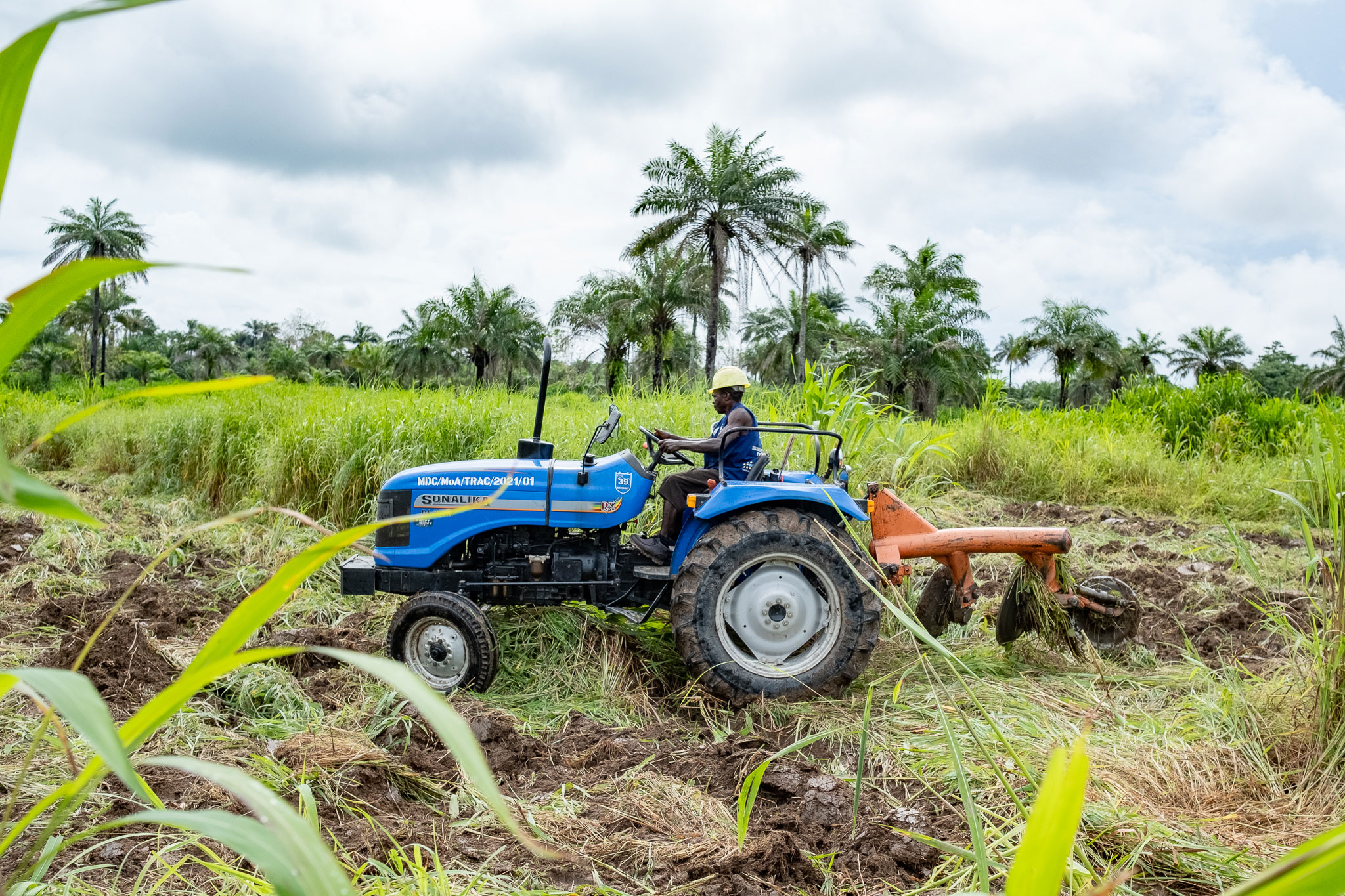areas of Intervention
- To increase land under cultivation and ultimately production levels, the following key interventions will be undertaken;
- Develop 73,000 ha of Inland Valley Swamps (IVS) and other low-land rice ecologies.
- Develop 30,000 ha of irrigated rice and vegetable fields.
- Increase the availability of tractors and other agricultural machinery through the Mechanisation Fund.
Overview
Even though Sierra Leone is endowed with abundant natural resources, and climate to support agricultural production, the absence of the appropriate level of irrigation and mechanisation infrastructure continues to limit productivity levels in the sector. For instance, although over a quarter of the country’s 5.4 million hectares of land have considerable potential for irrigation, less than 1% of it is supported by irrigation facilities. Consequently, most farmers in the country depend on rainfed agriculture which, with the changing climate and weather unpredictability, is presently having a negative impact on productivity levels, and could continue to do so.
Agricultural mechanisation is among the lowest in the African sub-continent, at 2%, contributing to agricultural activities being labour-intensive in the country (African Development Bank, 2023). In the last decade, the rising cost of labour primarily due to rural-urban migration of youth and the advent of new opportunities in non-farming job options, such as motorbike taxi riding, have negatively affected agricultural activities and made labour-intensive cultivation less reliable.


While successive governments have in the past provided machinery and relevant support to farmers through a public sector led model, in 2020, the Government as part of a policy shift, sought to develop agricultural mechanization across the country through a Public-Private Partnership arrangement with service providers that became known as “Machine Rings”. Through this arrangement, centres were established in 14 agricultural districts to provide mechanized support to farmers, resulting in the provision of 210 tractors to farmers across the country. Despite the existence of these Machine Rings the expansion of mechanization services still presents a significant hurdle due to the sluggish pace at which the machine networks deliver services to farmers. The challenges persisting within these Machine Rings are compounded by the underdeveloped state of agricultural land throughout the country, a shortage of skilled machine operators, widely dispersed small farm holdings, lack of readily available spare parts and local repair services, and the rise in global fuel prices.